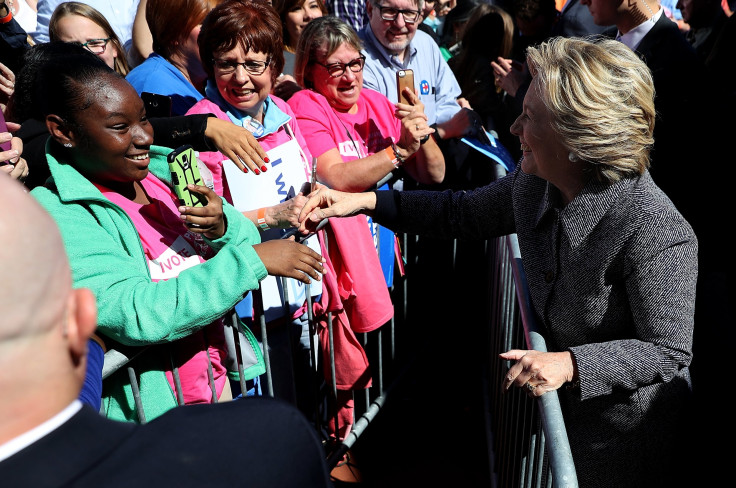Clinton, Trump Electoral Map: With Tight Polls, Can Hillary Actually Win Red States Like Texas, South Carolina And Mississippi?

In one of the more unconventional election cycles in recent memory, the 2016 electoral map may look quite different from previous maps, with a few traditional red states perhaps turning blue. Hillary Clinton may be a surprise contender in states that haven't voted for a Democrat in decades, which would likely mean an electoral landslide over Republican nominee Donald Trump.
Three states with a decent chance of switching from red to blue include Texas, Mississippi, and South Carolina. Losing any of those states would likely spell doom for Trump, as Clinton is expected to receive a minimum of 206 of the 270 electoral votes needed to win the election.
While winning any of the three states would mean a monumental victory, it remains a longshot considering Trump's ability to stay competitive in national polls.
Electoral map derived from new Washington Post-SurveyMonkey 50-state poll https://t.co/YmAJOzvVTZ pic.twitter.com/Tptsa0eO7K
— 270toWin (@270toWin) September 6, 2016
In Texas, Trump leads Clinton in a head-to-head race, 42 percent to 36 percent, according to Texas Lyceum poll and an Emerson College poll. Both polls were conducted in the early part of September, and after Clinton saw a boost from the debate.
It doesn't help that Latinos, a highly coveted voting bloc that typically votes Democrat, may be inspired to vote for Clinton based on Trump's anti-immigrant rhetoric. The Pew Research Center estimates there are 4.8 million Latinos eligible to vote in Texas compared to 2.6 million in 2012. And in a sign that Latino voter outreach is growing, there are now taco trucks doubling as voter-registration sites in Houston.
Also, Trump's lead in Texas is much slimmer than former Republican nominee Mitt Romney, who defeated President Obama, 57.2 percent to 41.4 percent, to claim the 38 electoral votes.
But Trump may still have an advantage over Clinton considering Republicans outnumbered Democrats in voter turnout in the primaries, 2 to 1.
The status of Mississippi, a state with just 6 electoral votes, is more uncertain. It's been several weeks since a poll was released for Mississippi, though the past results were rather encouraging for Clinton. In a three-way race, the Washington Post/SurveyMonkey poll had Trump at 46 percent, compared to Clinton at 43 and Libertarian Party candidate Gary Johnson at 4 percent.
However, Trump may be able to rest easy knowing history is on his side. The last time a Democratic nominee won Mississippi was Jimmy Carter in 1976, and Romney defeated Obama in 2012, 55.3 percent to 43.8 percent.
The race for South Carolina may be the most ominous for Trump. A recent Winthrop University poll had Trump leading 42 percent to 38 percent, and with Johnson trailing at 6 percent and Jill Stein at 3 percent. But the 6-point advantage may not be secure with 7 percent not sure or undecided and 4 percent refused to answer.
Most South Carolina voters are satisfied with the economy. In the survey, a total of 61 percent of respondents rated the condition of the economy as "very good" or "fairly good," while only a total of 36 percent rated it "very bad" or "fairly bad."
The optimism surrounding Clinton's chances may stem from President Obama's victory in Indiana in 2008. It was the first time Indiana voted for a Democrat since Lyndon Johnson in 1964, though Romney moved the state back to red in 2012.
In the end, the task for the Clinton campaign may be too great and there may still be heightened motivation to campaign in more noted swing states like Ohio and Florida. Clinton's official website, meanwhile, does not list any campaign speeches in Texas, Mississippi or South Carolina between now and Oct. 23.
© Copyright IBTimes 2024. All rights reserved.












